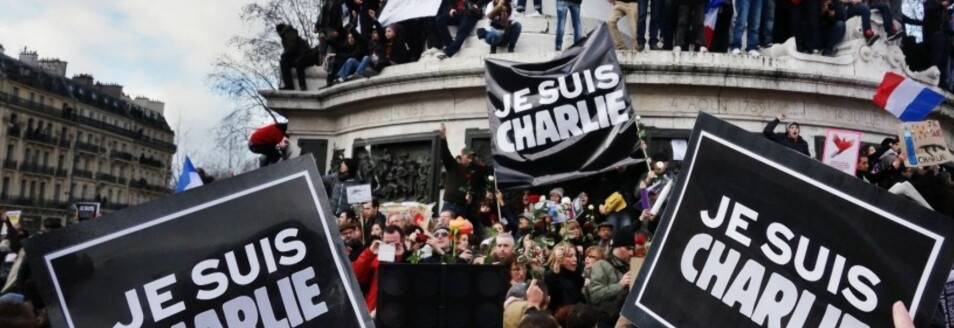With the tyrants against terror?
Denne artikkelen er over ti år gammel og kan inneholde utdatert informasjon.

Av Bjørn Olav Utvik, professor i Midtøstenstudier, Universitetet i Oslo
The military advances made and the atrocities committed by the Islamic State (IS), followed by the terrorist attacks in Paris and Copenhagen, have tended to put Western leaders and Western opinion back on the old track of seeing in the Middle East only a choice between terrorists and authoritarian regimes, and opting for an alliance with the latter against the former.
But is this the real choice? And would it really lead to a weakening of terrorist trends?
The killings in France and in Denmark, which were partly directed against what the terrorists saw as blasphemous caricatures of the Prophet, drew the focus of European debate towards an all-out defence of freedom of speech seen to be threatened by Muslim condemnation of blasphemy against Islam. But if we ally with Sisi in Egypt, with king Abdallah in Jordan and with the monarchs of the Gulf, most of whom either came to Paris to march for freedom, or sent their representatives to do so, are we really furthering the cause of free speech?
A quick look at Middle East realities would indicate that we are not. Tens of thousands of political opponents of these rulers fill the jails of the region for having protested against the autocrats in power. Even higher numbers are sacked from their jobs or evicted from the universities for the same reason. A couple of minor fresh minor examples: On 23 February Adil Badr, professor of philosophy at the University of Mansura in Egypt, was removed from his job because he had characterised the regime as a despotic military one. On 15 February Zaki Bani Rsheid, deputy leader of the Muslim Brothers in Jordan, was sentenced to 18 months in jail for having criticised a decision by the United Arab Emirates to blacklist his organisation. There are of course also examples of people punished for alleged blasphemy, notably by the West’s most important Arab ally, Saudi Arabia. But if freedom of speech is a general principle it is obvious that by far most of the widespread violations of this right in the Middle East concerns the denial of the right to publicly criticise those in power.
The failure to acknowledge this also leads to a fatal flaw in much of the Western approach to the question of the often called-for “reform of Islam”. The presumption made is that the terrorist problem resides in a radical intolerant interpretation of Islam, and that to counter it one must support forces that represent a more moderate, tolerant way of understanding the message of the Koran and the Prophet. Whatever the merits of this view it is stillborn when the sought-after forces of moderation are identified as rulers like Sisi and Jordan’s king Abdallah, and clerical institutions like the Egyptian al-Azhar and the official Saudi hierarchy of ulama. These actors are hardly interested in promoting the freedom to draw caricatures of the Prophet. Yet they see in the current uproar in the West an excellent opportunity for making allies in crushing any voice of opposition. At a closer look the way these “moderate forces” want to de-radicalise Islam is this: the wayward youth and other oppositional forces should be taught to respect authority at two levels. First, in line with the doctrine of the Wahhabi interpretation dominating official religion in Saudi Arabia, in political terms the duty of the ordinary Muslim is obedience to the ruler, identified with the wali al-amr referred to in the verse 4:59 of the Koran. This is a call raised most explicitly by the most loyalist, non-political salafis. As importantly it is implicit in the way actual practice under most Arab rulers punishes public criticism of the ruler. But more than that: the primary argument used against the jihadis is not their terrorism, but that they have called for jihad without asking the permission of the ruler. And through designating most moderate Islamist movements as terrorist Sisi and others extend the charge of illegitimate non-obedience to most of the effective opposition. Second, there is a concerted attempt to re-establish the lost monopoly of the clergy, the ulama, to interpret the word of God. In a number of countries this includes the introduction of new legislation and other measures for the state through the official institutions of religious learning to control what is being said in the mosques during Friday prayers. Yet this is a futile attempt to force the clock back to the time when most people were illiterate and had no direct access to the holy scriptures.
To seek moderation and tolerance through allying with bloody suppressors of freedom of speech and of religious interpretation is at best a dead-end street.
–––––––––
Innlegget er også publisert i The New Middle East Blog, https://newmeast.wordpress.com/







